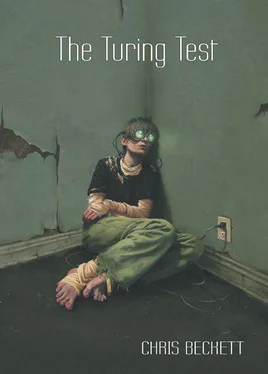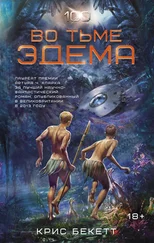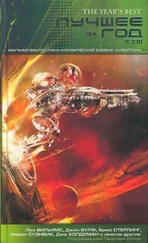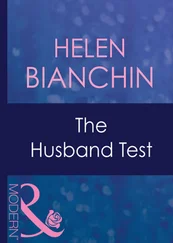“Look Lemmy!” James said, pointing past the stalls, “There’s that white animal again!”
Lemmy took over at once. He was determined not to let it get away from him again.
“Okay. Listen. Be quiet and follow me!”
The deer was in a small dark alley between two old Victorian warehouses, grazing on tufts of grass that grew up through cracks in the tarmac. It lifted its head and looked straight in their direction. They all thought it was going to run, but it bent down again and calmly continued with its grazing.
“What is it?” Lemmy whispered as they drew up with it.
He reached out and touched it. The deer took no notice at all.
Kit shrugged.
“I’m bored. Let’s go and do something else.”
“Yeah let’s,” Tina said. “I don’t like this animal. I’m sure it’s something physical.”
Lemmy and his friends didn’t really understand ‘physical’ but there was something eerie and threatening about the particular quality of being that went by that name. Lemmy had come across a physical piece of paper in the street once, skipping and floating through the air as if it weighed nothing at all. And yet when it fell to the ground and he tried to pick it up, it was hard as iron to his touch and he couldn’t shift it any more than he could shift a ten ton weight. And Outsiders were physical too in some way. They had some kind of affinity with physical objects. That was what defined them as being ‘outside’. That was one of the things that made them seem eerie and threatening too.
“Physical?” Kit exclaimed, taking a step back. “Ugh! Do you really think so? I didn’t know animals could be physical. Except birds of course.”
The deer lifted its head again and looked straight past them down the alley. How could a creature be so alert, so on edge, yet be so completely indifferent to them even when they were so close? What else was there in the world for it to be scared of?
“Of course it’s physical,” James said. “Just look how high-res it is!”
“Yeah, even more than you, Smoothie,” said Kit.
And it was true. The deer wasn’t at all like the cheerful little low-res dogs and cats that people in Dotlands kept as pets. You could see the individual hairs on its back.
But none of this concerned the white hart. It finished the tuft of grass it was eating and moved off slowly down the alley, as indifferent to their judgement as it was to their presence.
“Are you coming Lemmy?” called Kit, as she followed James and Tina back to the cheerful market.
* * *
But Lemmy didn’t follow them. He followed the white hart. He followed it right across London, through back streets, across parks, over railway tracks, in and out of low-res neighbourhoods and high-res neighbourhoods, across white areas and black areas, through shopping centres, across busy freeways.
It was slow progress. The deer kept doubling back on itself or going off in completely new directions for no apparent reason. Sometimes it stopped for twenty minutes to graze or to scratch with its hoof behind its ear. Sometimes it would run and skip along at great speed and Lemmy could barely keep up, though at other times he could walk right beside it, resting his hand on its back. Once it lay down in the middle of the road and went to sleep. Cars honked at it. One driver even got out and kicked it, which would have made Lemmy mad if it wasn’t for the fact that the deer didn’t even stir in its slumber and the man hurt his foot.
“Bloody Council,” the driver said, glowering at Lemmy as he hobbled back to his car. “I thought they were supposed to keep these damned things out of here.”
He – and all the cars behind him – had to drive up onto the kerb to get round the sleeping animal.
What things? Lemmy wondered. What things were the Council supposed to keep out?
Five minutes later the deer woke up and moved off of its own accord.
Another time it went through the front door of a small terraced house – not through an open door, but through the shiny blue surface of a closed one as if it was mist or smoke. It was a shocking and inexplicable sight, but such things happened occasionally in London. (Once, when Lemmy was little, he and his mother had been walking down a street when the whole section of road ahead of them had simply disappeared, as if someone had flipped over channels on TV and come to an unused frequency. A few seconds later it all returned again, just as it had been before.) Lemmy waited and after a few minutes the deer’s antlers and head and neck appeared again through the door, looking like a hunting trophy. Then it came right through and trotted off down the street. (The blue door opened behind it and a bewildered couple came out and stood there and watched it go, with Lemmy following behind.)
On they wandered, this way and that through the suburban streets. But as evening began to fall and the street lights came on, the deer seemed to move more purposefully northward. It was as if its days’ work were done, Lemmy thought, and it was going home. It seldom stopped to graze now, it never doubled back. At a brisk trot, occasionally breaking into a run, it hurried on past miles of houses where families were settling down for the evening in the comfortable glow of television. A few times Lemmy thought he’d lost it when it ran ahead of him and disappeared from his view. But each time, just when he was on the point of giving up, he saw it again in the distance, a ghostly speck moving under the street lights, so he kept on going, though he was miles away from home now and in a part of the city he had never seen before.
* * *
And then the white deer came to the last house in London – and the city ended.
Lemmy had realised that London wasn’t limitless of course. He knew there were other places beyond – there were stations, after all, with gateways you could go through and visit New York or Florida or Benidorm or Heaven or Space – but it had somehow never occurred to him that there might be a point where the city just petered out.
But here he was in front of a line of orange lights that meandered away into the distance, East and West, to his left and to his right, up and down hills, with a sign put up by the Council appearing again and again after every five lights:
Perimeter of Urban Consensual Field
To the north, straight ahead of him, beyond the lights, the orange glow they gave off continued for some yards but then stopped. After that there was nothing: no ground, no objects, no space, just a flickering blankness, like a spare channel on TV.
Lemmy hardly ever went to school and he could barely read, and in any case it was his practice to ignore official signs. What seemed important to him at that particular moment was that the white hart had already trotted forward under the orange lights and into the bare orange space beyond. Lemmy’s Dotlands sense of honour dictated that he couldn’t stop. Even if he had no idea what a perimeter was – let alone a consensual field – and even if it meant going into still stranger territory when he already he had no idea where he was – he couldn’t stop now any more than he could refuse a dare to go into the middle of Grey Town or to walk up to Mr Howard and call him a spook to his terrifyingly high-res face.
And yet, almost immediately, he did stop, not because he’d changed his mind but because, when it came to it, he simply had no choice in the matter. He was just walking on the spot. It was impossible to go forward. And words he had seen on the signs appeared again, but this time right in front of his eyes, flashing on and off in glowing green:
Perimeter of Field!
Perimeter of Field!
Читать дальше











